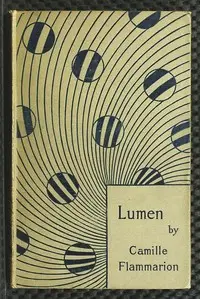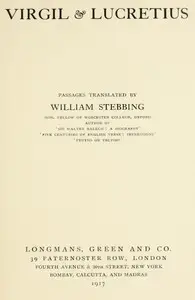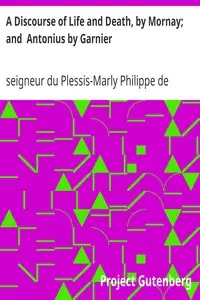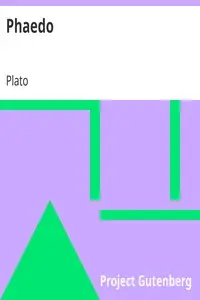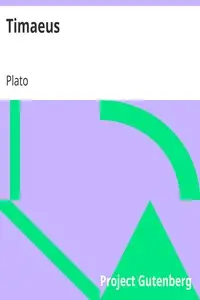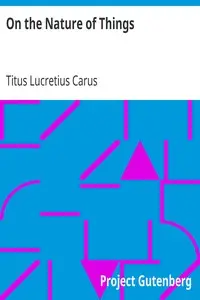"Translations from Lucretius" by Titus Lucretius Carus is a thoughtful exploration of nature, reality, and what it means to be human, told through poetic language. The writing investigates ideas about the universe and understanding life, death, and how to find joy. It starts by calling on Venus, the goddess of love, to help explain the natural world. The text argues for understanding the universe through reason and the idea that everything is made of tiny particles, instead of fearing gods or religious ideas. It looks at matter, the cycle of life, and why people fear death, building a foundation for a philosophical look into what it means to exist and why fearing death is pointless.
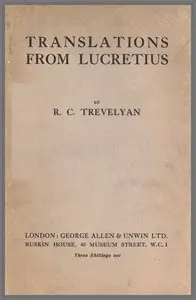
Translations from Lucretius
By Titus Lucretius Carus
Embark on an ancient quest to understand the universe, challenge the fear of death, and discover the secrets to happiness through reason and the building blocks of all matter.
Summary
About the AuthorTitus Lucretius Carus was a Roman poet and philosopher. His only known work is the philosophical poem De rerum natura, a didactic work about the tenets and philosophy of Epicureanism, which usually is translated into English as On the Nature of Things—and somewhat less often as On the Nature of the Universe.
Very little is known about Lucretius's life; the only certainty is that he was either a friend or client of Gaius Memmius, to whom the poem was addressed and dedicated. De rerum natura was a considerable influence on the Augustan poets, particularly Virgil and Horace. The work was almost lost during the Middle Ages, but was rediscovered in 1417 in a monastery in Germany by Poggio Bracciolini and it played an important role both in the development of atomism and the efforts of various figures of the Enlightenment era to construct a new Christian humanism.
Titus Lucretius Carus was a Roman poet and philosopher. His only known work is the philosophical poem De rerum natura, a didactic work about the tenets and philosophy of Epicureanism, which usually is translated into English as On the Nature of Things—and somewhat less often as On the Nature of the Universe. Very little is known about Lucretius's life; the only certainty is that he was either a friend or client of Gaius Memmius, to whom the poem was addressed and dedicated. De rerum natura was a considerable influence on the Augustan poets, particularly Virgil and Horace. The work was almost lost during the Middle Ages, but was rediscovered in 1417 in a monastery in Germany by Poggio Bracciolini and it played an important role both in the development of atomism and the efforts of various figures of the Enlightenment era to construct a new Christian humanism.


